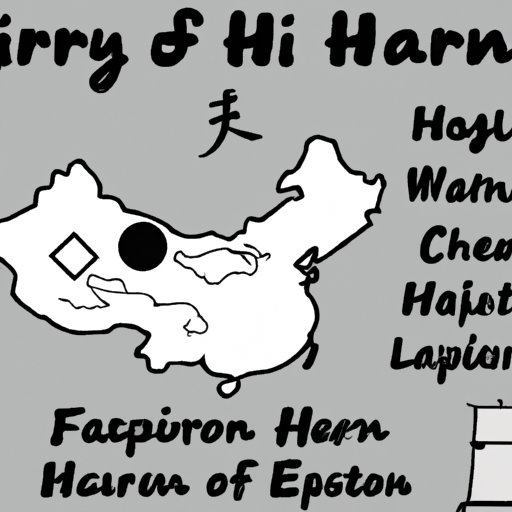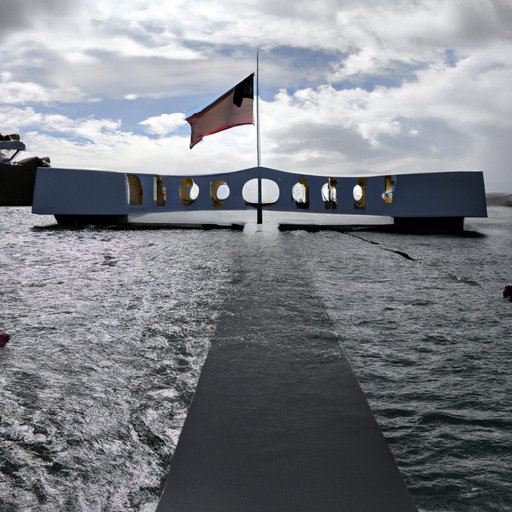Learn the complex causes of the Holocaust, from the rise of Hitler to the role of propaganda. Tracing the roots of evil allows us to understand how to prevent future atrocities from occurring.
Understanding Japan’s Invasion of China: Historical Context, Impact, and Lessons Learned
Japan’s invasion of China during World War II was a brutal and destructive conflict that led to the deaths of millions of Chinese civilians and soldiers. In this article, we explore the underlying motivations, impact, and lessons learned from this historical event, which remains a contentious issue between Japan and China today. By studying the lessons of history, we can build a more peaceful and sustainable future.
The Historical Significance of D-Day: Military Strategies, Personal Stories and Legacy
D-Day,the turning point of World War II which led to the eventual victory of the Allies to Nazi Germany. Highly strategic, with personal stories and lasting strategic effects, D-Day is remembered and commemorated today as an event that shaped the world we live in.
Why Did Hitler Invade the Soviet Union? Exploring the Motivations Behind Germany’s Fateful Decision
Discover the complex reasons behind one of the most significant events of World War II as we explore Hitler’s Invasion of the Soviet Union. From Hitler’s ambitions for Germany to his ideological opposition to communism, this article delves into the complex factors that led to this pivotal moment in history.
Why Did We Bomb Hiroshima? Understanding the Factors Behind the Decision to End a War
Exploring the historical, technological, geopolitical, and moral factors that led to the decision to drop the atomic bomb on Hiroshima, and analyzing the long-term effects of this event on Japan, global policy-making and nuclear policy. Telling the stories of Hiroshima survivors, and how the bombing impacted their lives. Comparing the bombing to other significant events in history and reflecting on the moral and ethical implications of using atomic weapons in warfare.
Pearl Harbor: Reflecting on the Casualties and Legacy of the Attack
This article explores how many casualties occurred at Pearl Harbor. It analyzes the factors that contributed to the death toll, including defense mechanisms, military response and intelligence. It provides a personal perspective from survivors and their families and compares Pearl Harbor’s death toll with other military attacks. It also examines how Pearl Harbor has shaped U.S. foreign policy and its ongoing impact on veterans and their families.
The Legacy of Pearl Harbor: A Day That Will Live in Infamy
On December 7th, 1941, Japanese forces launched a surprise attack on the U.S. naval base at Pearl Harbor, forever changing the course of American history. This article explores the events of that day, its impact on the United States, and its lasting significance. We honor the sacrifices made by the brave men and women who fought back against the attackers and celebrate their legacy in American history.
Why Did Japan Enter WW2 – An Exploration of Historical, Ideological, and Economic Factors
This article explores the factors that led Japan to enter the Second World War, including their historical background, ideological beliefs, and economic needs. It examines the impact of international relations, diplomacy, and Japan’s infamous attack on Pearl Harbor. The article culminates in the implications of Japan’s entry into WW2 for modern-day Japan and international relations.
The Battle of Stalingrad: How it Changed the Course of World War II and Shaped Global Politics
The Battle of Stalingrad was a major turning point in World War II, marking the beginning of the Soviet Union’s resurgence and the decline of the Axis powers. This article explores the significance of this historic event and its impact on World War II and global politics by delving into the human cost, uncovering the role of espionage, examining the legacy, and analyzing the battle in pictures.
The State of Living World War II Veterans in 2022: Stories, Statistics, and Support
Learn about the current state of living World War II veterans in 2022, their stories, statistics, and the support they need. This article highlights the importance of preserving these veterans’ experiences and explores their impact on the world. Discover the lessons we can learn from their sacrifices and how we can support them in their old age.









